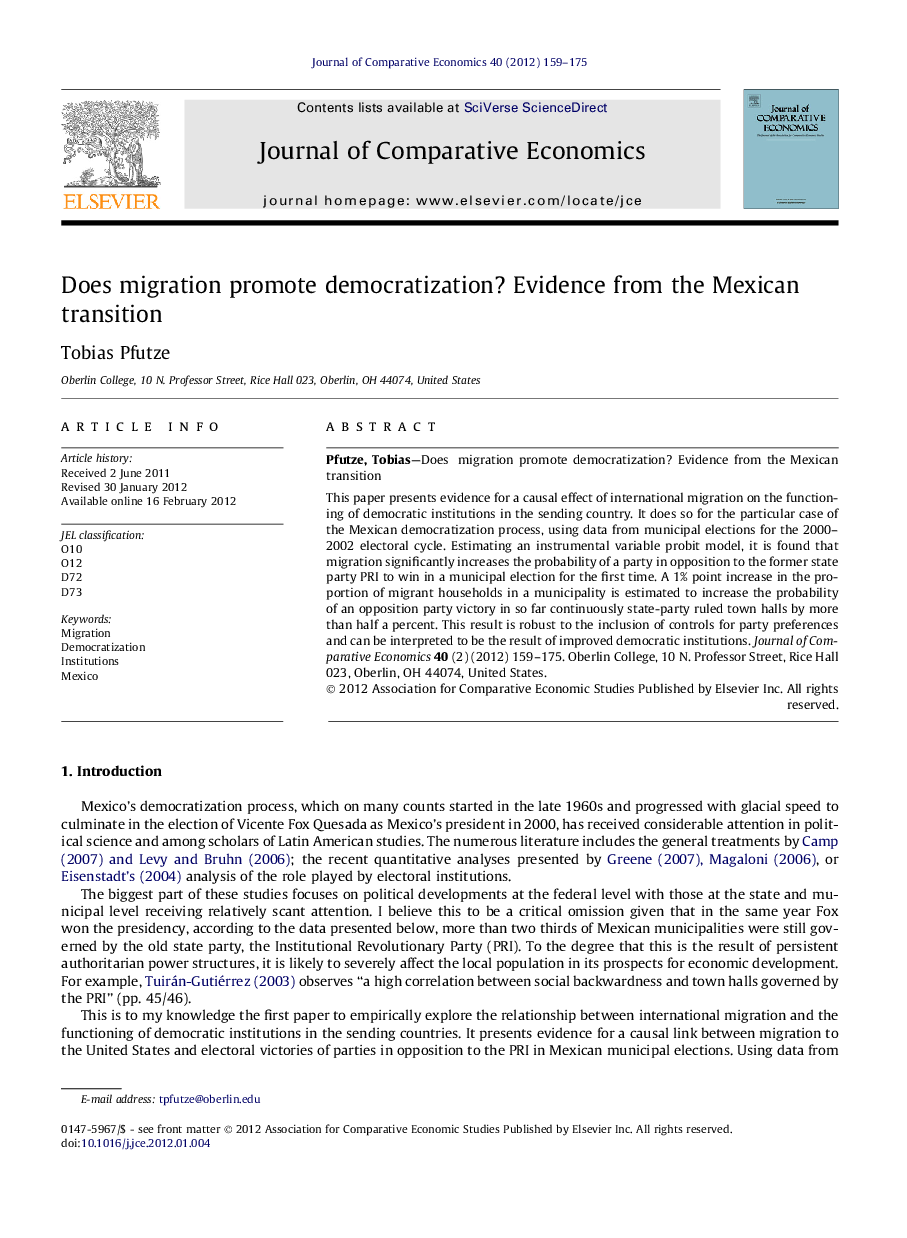| Article ID | Journal | Published Year | Pages | File Type |
|---|---|---|---|---|
| 5092453 | Journal of Comparative Economics | 2012 | 17 Pages |
This paper presents evidence for a causal effect of international migration on the functioning of democratic institutions in the sending country. It does so for the particular case of the Mexican democratization process, using data from municipal elections for the 2000-2002 electoral cycle. Estimating an instrumental variable probit model, it is found that migration significantly increases the probability of a party in opposition to the former state party PRI to win in a municipal election for the first time. A 1% point increase in the proportion of migrant households in a municipality is estimated to increase the probability of an opposition party victory in so far continuously state-party ruled town halls by more than half a percent. This result is robust to the inclusion of controls for party preferences and can be interpreted to be the result of improved democratic institutions.
⺠International migration is found to increase the probability of an opposition party victory in local elections during Mexico's democratic transition. ⺠This effect persists once electoral preferences are taken into account. ⺠The effect is found to statistically significantly only for first time victories, but does not determine outcomes in places with a history of competitive elections.
